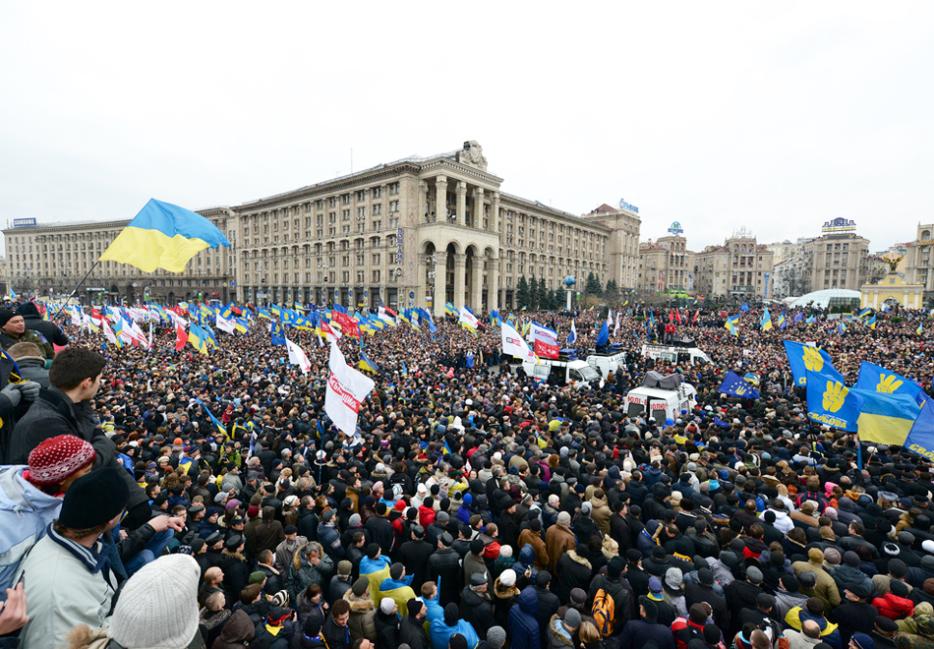In less than a week, everything of importance has changed in Ukraine. Viktor Yanukovych ceased to be the effective president sometime on Friday and fled the capital Saturday, and is currently reported to be in Crimea. This may end up being just one stop on the way to Russia, assuming he manages to cross the frontiers of the country he led days ago before they deposed him and charged him with mass murder.
It’s too early to say things have changed for the good, but “good” is at least a possibility now, and it wasn’t while Yanukovych was denying the existence of substantial and vocal unrest in his country, even before he tried to clear the streets with a whiff of grapeshot. We can, at least, be grateful that this is all taking place in a country that gave up the nuclear weapons in its posession 20 years ago.
One problem (among myriad) is that there’s no agreement on what the next stage for Ukraine looks like. The EU and the United States, for their part, are pressuring the new Ukrainian government to accept an aid package exclusively through Western channels, a move that would retroactively make the clichéd take on the last months of tumult appear to be accurate—that it really was about whether Ukraine would be run from Moscow or Brussels. (Or Berlin? Or Washington?)
Except, of course, nobody in the West actually wants to run Ukraine—and, likewise, Ukrainians should probably run screaming from any Westerner offering to help. Whether it’s economic or military aid, the last decade-plus of experience offers any number of stories about what happens when Western countries try to help, and not a lot of them end well. (Horror stories tend not to.)
On the economic side, you’ve got more than a decade from the 1997 Asian financial crisis (which itself contributed to the Russian default in 1998, and the ensuing economic chaos that helped bring Putin to the fore) to the world-shattering financial collapse of 2008. The memories of the International Monetary Fund’s attempted “rescue” of Asian economies in 1997 are still geopolitically relevant today. And in the last few years, would you trust your country’s fate to the brain trust behind the euro?
And if the West’s almost unbroken decade-long record of military failure wasn’t enough to warn Ukraine away from joining NATO, Russia is making it explicit: if the new government crosses that red line, “Russia will do whatever it takes to prevent that from happening.” That’s not the kind of language governments use carelessly, and Ukraine would be right to be tread lightly. Other leaders have assumed the West would have their back in a fight with Russia, too, and they have been proven wrong.
It’s a shame, but some countries don’t get to choose their own fates. Even if things go well for Ukraine, it will still be, at best, a relatively small country (though still more populous than Canada) caught between two suitors, at least one of whom is willing to throw a punch to get its way. What Ukraine has earned in the last week isn’t a guarantee it will be the master of its own house, but, rather, the right to make its own case—and hope the giants in the playground will listen.






